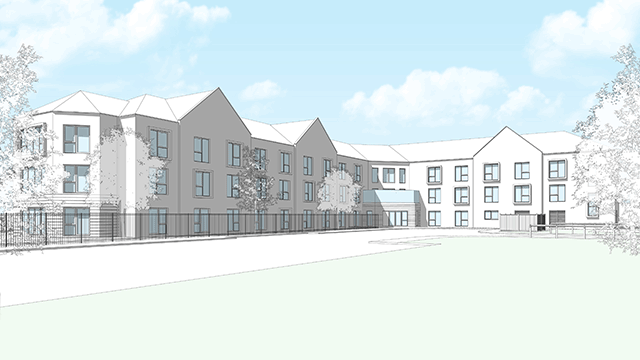COMMENT It’s well recognised today that the rise of distributed hiring and sustained flexible working policies has caused a multitude of changes in the way large companies think about office space. When you look at the data, there’s now no doubt there has been a significant shift in occupancy behaviour within the office space market. Glancing at LinkedIn headlines over the past couple of years might lead someone to think that either “we’re going back to the way things were” or, in fact, that “there’s absolutely no need for office space whatsoever”.
I’d like to propose an alternative: the demand for space has simply changed.
I want to share some of our findings for the reasons organisations may need something dramatically different from the market to meet their evolving need for office space, and why a key part of the solution for enterprise businesses may be found outside of the traditional office space market and in hotels.
Hotel-cum-office
Since launching Desana in 2019, we’ve had the privilege of working with some of the world’s most influential companies, including Dropbox, GitHub, and many more FTSE 100 companies too NDA’d to name, to help facilitate a shift in the way they use office space in their transition to hybrid working. In doing so, it’s given us a pretty intimate insight into how real estate and people teams in these companies are evolving their policies and strategies around the use of space. This continually necessitates us to adapt our “booking.com for office space” solution, and the latest need that’s become abundantly clear is that – much like booking.com itself – this includes hotels for our customers to book.
It’s no secret that companies have been leveraging flexible working to achieve more efficiency in the way they spend on office space. The recent prominent example of Meta paying £149m to let go of its iconic central London headquarters being just one of many examples. In the long run these decisions are set to save companies hundreds of millions in rent and operational costs, but they’re not made lightly. A new set of challenges are posed from running a more lean portfolio of space, not least the need for strategies that purposefully facilitate real-life connection within a distributed workforce.
A common example is that a traditionally leased office space in a company’s portfolio may sit at 15-30% mid-week occupancy, but on two days of the month not have enough space to accommodate a freak surge in attendance or, more acutely, have the required capacity to accommodate two teams of 60 people from other cities/countries doing a quarterly planning session or product sprint. It’s these larger group demands that put real stress into the system, and finding a way to more efficiently accommodate them is now a key operational challenge for real estate teams to solve, not necessarily just the meetings and events teams.
It has rapidly become clear that booking the 60-person room at the neighbouring hotel or flexible workspace promises a much more effective way to balance load
The cost implications of simply permanently leasing more space to accommodate this kind of occasional and disparate need for capacity at the scale of a large multinational business is significant. For businesses with this intermittent need for large space, it has rapidly become clear that booking the 60-person room at the neighbouring hotel or flexible workspace promises a much more effective way to balance load, while being more cost efficient, sustainable and, in many circumstances, a much higher quality experience.
This potential reallocation of corporate real estate budgets straight into the back pocket of the hoteliers poses a very lucrative opportunity given the margin made on conferencing. The rise of brands like Wojo from Accor hotels, or Convene, which was set up exclusively to accommodate larger groups in high amenity bookable space, make it clear that the lines are now fully blurring between the office space and hospitality industries, and that the need for “office space” has certainly not gone but has definitely changed.
However, this isn’t without its problems. There are some big challenges to overcome for businesses to make this feasible at scale, something we aim to address with the recent launch of the Desana Events product. As we explored this problem set with our customers, we uncovered some significant roadblocks around the sourcing of space, procurement of vendors, control of budget and allocation of spend, as well as a lack of data on how they’re using these spaces. The outcome is often some pretty harassed and under-resourced teams that have to sort it all out, on an ever-increasing basis.
One-stop shop
Where we landed was that by consolidating the legal contract, sourcing, and payment, into a single platform (still running somewhat on the booking.com analogy), we could not only solve these problems for global teams, but add data on use to help aid analysis, and future strategy. Making this behaviour more achievable at scale will give companies the ability to more reliably unlock the savings this makes possible. This model is also significantly more sustainable than fitting out, heating and powering leased space that’s intended to be used once a month, by instead simply booking the existing neighbouring resources.
There is never a shortage of views on the future role of the office or the speed of the CRE industry to embrace innovation. However, we believe that this consolidation of hospitality and CRE, combined with the embracing of technology and innovative commercial models, will sustain the paradigm shift to more efficient models for real estate, rather than erode the need for it.
Michael Cockburn is co-founder and chief executive of Desana











